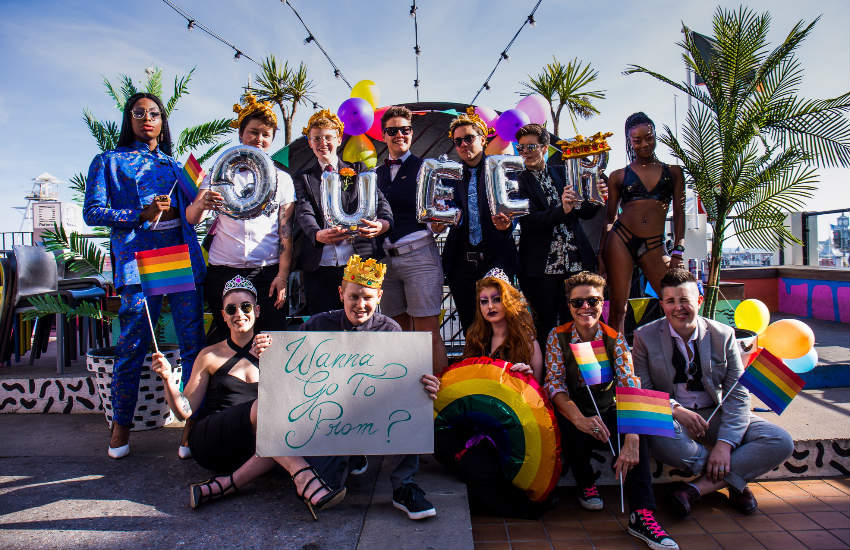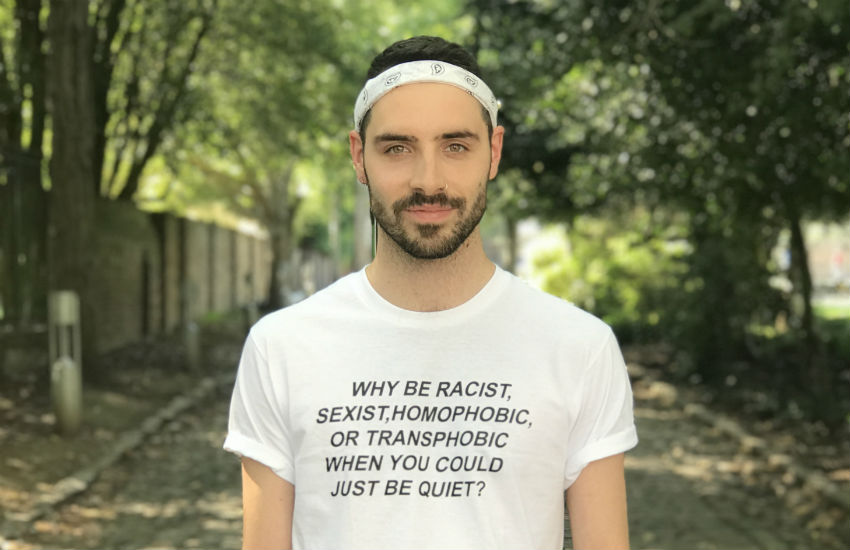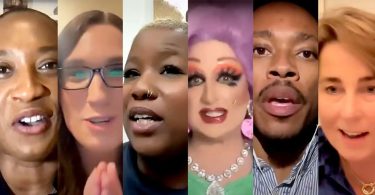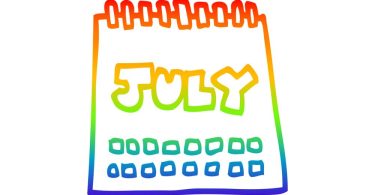If people want to identify as queer, let them. | Photo: James Besanvalle
Queer is an incredibly divisive word in the LGBTI community.
Whenever we post stories on Gay Star News and describe someone as ‘queer’, there’s inevitable backlash.
Even if the person who the story is about uses the term to describe themselves, a wave of people are quick to point out it’s a slur.
Take, for example, a story we published last month about a guy winning a gaming world title.
Dominique ‘SonicFox’ McLean self-identifies as ‘queer’ but also uses ‘gay’ interchangeably to describe himself.

Gamer SonicFox. | Photo: @SonicFox5000 / Twitter
His Twitter bio says he’s a ‘Black Queer Furry’ (the latter because he dons his fox ‘fursona’ when he’s playing games) so we described him as such in the headline.
But when we posted the story to social media, a few people commented: ‘Queer is a slur!’ and ‘There is no excuse for using a slur. Zero.’
Yes, the term can absolutely be used as a slur. And, of course, it’s important to recognize the well-documented history of its use as a derogatory word.
But now some people are reclaiming it and it’s also important to recognize and just accept that fact.
History of the word ‘queer’
The word ‘queer’ literally means ‘strange’ or ‘odd’.
It wasn’t until about a century ago that it became a pejorative. One of the earliest recorded uses of the word as a reference to homosexuality came through an 1894 letter by John Sholto Douglas, 9th Marquess of Queensberry.
Douglas angrily wrote about the relationship his son Alfred had with famous poet Oscar Wilde. He referenced ‘snob queers’.
The term then gained popularity in the early 20th Century, most commonly used to describe gay men who engage in receptive or passive anal or oral sex with other men.
By the mid-20th Century, it became a general slur against all LGBTI people.
But by the late 1980s, activists began reclaiming the word as a neutral or even positive self-identifying term.

‘Do it again, do it right. do it Quee’r AF’. | Photo: Kaleido Shoots for Brighton Queer Prom
In 1990, an LGBTI activist group known as Queer Nation formed.
They wrote on a flyer at the time: ‘Using “queer” is a way of reminding us how we are perceived by the rest of the world. It’s a way of telling ourselves we don’t have to be witty and charming people who keep our lives discreet and marginalized in the straight world.
‘Yeah, queer can be a rough word but it is also a sly and ironic weapon we can steal from the homophobe’s hands and use against him,’ the flyer read.
Since then, people have began identifying as queer as more of an umbrella term for gender and sexual minorities.
These days, people now commonly also use the term to describe academic theory, film and literature.
Let me identify as queer if I want to
For me, identifying with the term is an act of defiance.
It’s using a term people taunted me with in the playground and flipping the narrative.
I’m reclaiming the word you used against me and proudly owning it.
Reclaiming historically offensive words thrust onto marginalized people happens all the time.
Feminists reclaimed the word ‘Suffragette’ from a place of ridicule to a word of power. Sex-positive people reclaimed the word ‘slut’ from a place of shame in promiscuity to empowerment.
So if I want to identify and reclaim the word queer, let me.

Actor Keiynan Lonsdale identifies as queer. | Photo: Instagram
Similarly, if a celebrity (or anyone!) comes out as queer or proudly identifies with the term, who are you to object?
Why can’t we let people identify how they like, without reminding them their identity is offensive to others?
Yes, we understand the word has historically negative connotations. And yes, we understand the ‘status’ and ‘offensiveness’ of the term may have remained the same for some people.
But increasingly, we’re seeing younger generations identifying with the term.
They’re rejecting gender and sexual binaries in favor of a more fluid term. And it’s time you let them live their best unapologetically queer lives.
James Besanvalle is the Family Editor for Gay Star News. You find him on Twitter.







